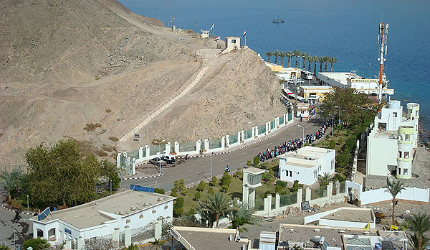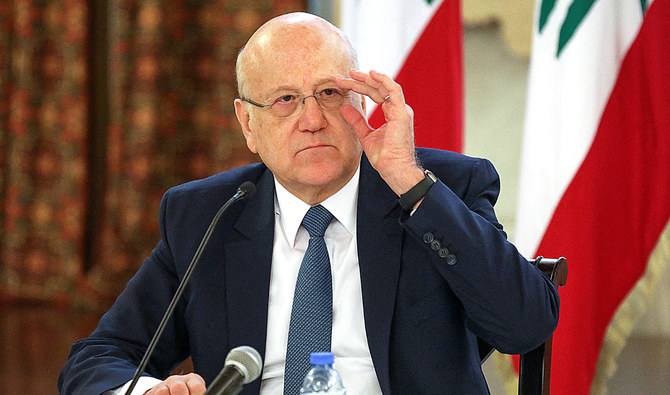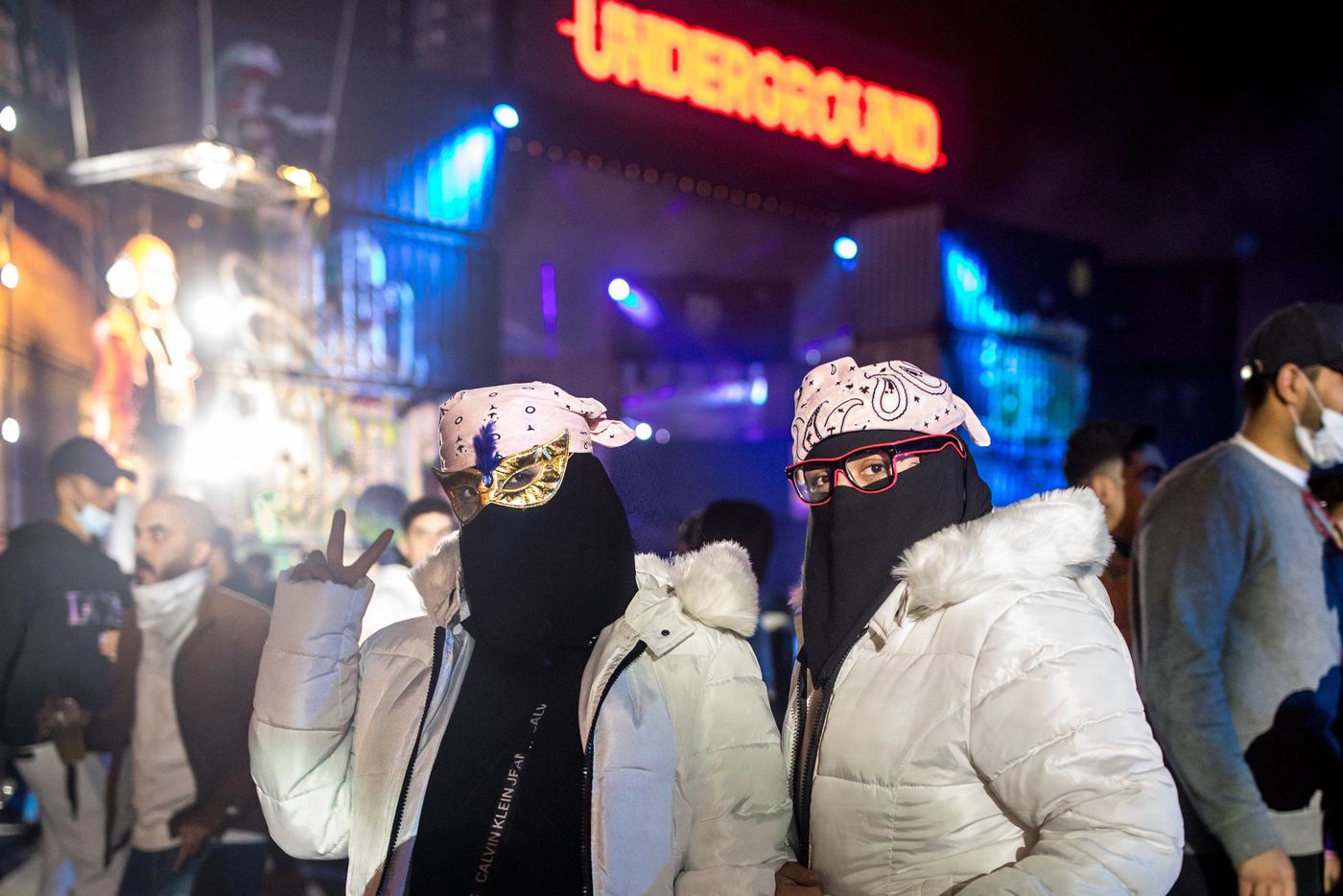
by HASSAN AMMAR -- TRIPOLI, Lebanon (AP) — Lebanon’s energy minister launched two projects in the country’s north on Tuesday to facilitate the flow of natural gas from Egypt. The move aims to improve electricity production and expand the country’s tanks to increase oil reserves. The revival of the Arab Gas Pipeline to deliver Egyptian gas to Lebanon comes as the small country is reeling from a crippling electricity crisis. The pipeline has been out of service in Lebanon since before Syria’s 10-year conflict began in 2011. Lebanese Energy Minister Walid Fayad said Egypt’s Technical Gas Services will begin renovation work on the pipeline inside Lebanon within days and work should be done in a little more than two months. Egypt has agreed to supply Lebanon with natural gas to its power plants through Jordan and Syria. Syrian experts have finished work inside the war-torn country.
The Syrian government is under U.S. and Western sanctions for its role in the war, which has left nearly half a million killed and disappeared and nearly half of the population displaced. Despite the sanctions, the U.S. has supported the resumption of natural gas flow from Egypt to Lebanon via Syria. Fayad told The Associated Press during a tour of an oil facility that U.S. officials who have visited Lebanon said the contract to bring gas from Egypt will not be targeted by sanctions because “no cash is going from any side to Syria.” He added that Egyptian officials are in contact with the Americans to make sure that the contract does not violate the sanctions.

By Najia Houssari -- arabnews.com -- BEIRUT: Officials in Lebanon continue to acquit themselves of all the crises that the Lebanese people are facing, as a result of the economic collapse, political disputes and Hezbollah’s influence on Lebanon’s external decisions. Following President Michel Aoun’s televised speech to the Lebanese people, where he indirectly criticized Hezbollah and its Shiite ally Parliament Speaker Nabih Berri, Prime Minister Najib Mikati held a press conference on Tuesday. He said that “interfering in the work of the Cabinet hindered the mission of his salvation government” and that “halting the Cabinet’s session since Oct. 12 constitutes a structural malfunction in the work of the government that cannot be ignored or overlooked.” Mikati stressed that he does not accept any settlement at the expense of institutions. “I do not barter the Cabinet’s meetings for any settlement that is not accepted by the Lebanese people and families of the victims of the Beirut port explosion, and the international community.” He added that he cannot hold anyone responsible for not holding the Cabinet’s sessions “as I am convinced of a disruption in the course of the Beirut port investigation; however, this cannot disrupt the government and stop the reforms.”
Mikati stressed the need to “distance the judiciary from political disputes and maintain its independence to preserve one of the state’s most important pillars,” in response to Hezbollah and the Amal Movement’s insistence on the dismissal of Judge Tarek Bitar from the investigation of the Beirut port explosion. He said: “When the state stopped acting by the law and became influenced by the sectarian political authority, it started breaking down and lacking the capability to carry out its missions as a body that is trusted to implement policies and strategies.” Mikati called for a national dialogue to improve Lebanon’s ties with the Arab states, especially in the Gulf. He also urged Lebanese leaders not to interfere in their internal affairs, and called for a return to the “dissociation policy that preserves our home and protects its relations with the international community and the Arab world.” He said that remediation should be done “within constitutional and legal frameworks,” and stressed the necessity to implement the constitution. He added that if his resignation is the solution, he will not hesitate to resign if he sees that it will contribute to further damage.
President Michel Sleiman: “Une nouvelle stratégie défensive devrait confier les armes à l’autorité exclusive de l’État dans un délai d’un an” https://icibeyrouth.com/liban/20060

By Donna Abdulaziz - wsj - -- RIYADH, Saudi Arabia—This conservative Islamic kingdom is rapidly trying to ease its staid social norms, allowing women to drive and travel freely in recent years, opening doors to tourists and tolerating music blaring from modern coffee shops. A four-day music festival earlier this month is emblematic of how Saudis are learning to have fun in ways that are common in much of the world but long forbidden here. The festival—called Soundstorm and organized by a Saudi company called MDLBeast (pronounced Middle Beast)—featured 200 performances, including from big-name DJs such as David Guetta. Held north of the capital Riyadh in a vast desert, the electronic-music event drew tens of thousands of people, most of them young Saudi men and women. Many mixed traditional national dress with LED sunglasses, marshmallow helmets, and the face paint common at rave parties, embellished with crystals and glitter.
“I can’t believe this is happening in Riyadh,” said Noura Mohammad, 28 years old, who attended Soundstorm with her twin sister, Ohoud, wearing matching white coats and pink bandannas over their niqabs, a traditional face covering. The sisters said they discovered electronic music through American movies but never expected to be able to dance openly in their home country. “My sister and I love to dance,” Ms. Mohammad said. Dancing and the mingling of sexes was once forbidden here. Now, the Saudi government is betting that events like Soundstorm will give the country’s large population of young people—about 70% of the population is under 35—an outlet for entertainment they are used to seeing in other parts of the world but not here. The government aims to double household spending on cultural and entertainment activities inside the kingdom by 2030, as part of Crown Prince Mohammed bin Salman’s drive to diversify and modernize the oil-dependent economy.
Khazen History


Historical Feature:
Churches and Monasteries of the Khazen family

St. Anthony of Padua Church in Ballouneh
Mar Abda Church in Bakaatit Kanaan
Saint Michael Church in Bkaatouta
Saint Therese Church in Qolayaat
Saint Simeon Stylites (مار سمعان العامودي) Church In Ajaltoun
Virgin Mary Church (سيدة المعونات) in Sheilé
Assumption of Mary Church in Ballouneh
1 - The sword of the Maronite Prince
2 - LES KHAZEN CONSULS DE FRANCE
3 - LES MARONITES & LES KHAZEN
4 - LES MAAN & LES KHAZEN
5 - ORIGINE DE LA FAMILLE
Population Movements to Keserwan - The Khazens and The Maans
ما جاء عن الثورة في المقاطعة الكسروانية
ثورة أهالي كسروان على المشايخ الخوازنة وأسبابها
Origins of the "Prince of Maronite" Title
Growing diversity: the Khazin sheiks and the clergy in the first decades of the 18th century
Historical Members:
Barbar Beik El Khazen [English]
Patriach Toubia Kaiss El Khazen(Biography & Life Part1 Part2) (Arabic)
Patriach Youssef Dargham El Khazen (Cont'd)
Cheikh Bishara Jafal El Khazen
Patriarch Youssef Raji El Khazen
The Martyrs Cheikh Philippe & Cheikh Farid El Khazen
Cheikh Nawfal El Khazen (Consul De France)
Cheikh Hossun El Khazen (Consul De France)
Cheikh Abou-Nawfal El Khazen (Consul De France)
Cheikh Francis Abee Nader & his son Yousef
Cheikh Abou-Kanso El Khazen (Consul De France)
Cheikh Abou Nader El Khazen
Cheikh Chafic El Khazen
Cheikh Keserwan El Khazen
Cheikh Serhal El Khazen [English]
Cheikh Rafiq El Khazen [English]
Cheikh Hanna El Khazen
Cheikha Arzi El Khazen
Marie El Khazen